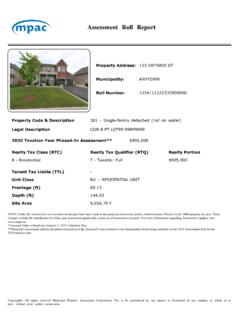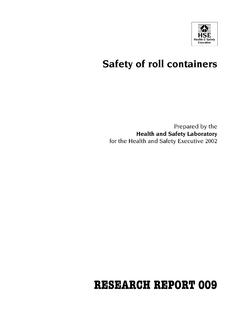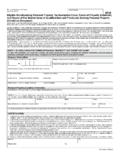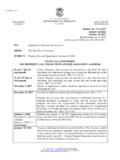Transcription of Making the difference! - bignam.org
1 Making the difference! The BIG in NamibiaBasic Income Grant Pilot ProjectAssessment report , April 2009 ISBN: 978-99916-842-4-6 The research of the Basic Income Grant Pilot Project is designed and carried out jointly by the Desk for Social Development (DfSD) and the Labour Resource and Research Institute (LaRRI) on behalf of the BIG Coalition (comments to: Coalition web page: authors of this report are Claudia Haarmann, Dirk Haarmann, Herbert Jauch, Hilma Shindondola-Mote, Nicoli Nattrass, Ingrid van Niekerk and Michael of this publication is funded by the Friedrich Ebert Foundation and is hereby gratefully of ContentsTable of ContentsTABLE OF OF.)
2 VIREADER'S GUIDE TO THE 1: THE BIG A SMALL PROJECT WITH A LARGE INTRODUCTION TO THE PILOT HOW BIG WAS PILOTED IN IMPLEMENTATION OF THE METHODOLOGY ..24 SECTION 2: IMPACT REALITIES OF POVERTY BEFORE THE EXPECTATIONS FOR THE VOICES OF PROFILE OF COMMUNITY LEVELS OF HUNGER AND GENERAL ECONOMIC ACTIVITY, INCOME, AND 3: A NATIONAL BASIC INCOME CASH TRANSFERS AND ECONOMIC LOCAL ECONOMIC CONCLUDING of PhotographsIndex of PhotographsPhoto 1: Plastic and corrugated zinc were the main building materi-als in Otjivero (April 2007)..20 Photo 2: The BIG as a 3: N$ 100 - Making a 4: BIG payout through NamPost savings 5: Dr. Hage Geingob, the first to donate to the BIG Pilot Pro-ject 6: Ms.
3 Emilia Garises, 55, mother of 7 children, head of household. (Before the BIG)..26 Photo 7: Desperation before the 8: Before 9: Housing before 10: Emilia Garises - Making dresses with material she bought from the 11: Otjivero-Omitara elected its own BIG 12: Sister Mbangu of the government 13: Johannes Goagoseb in prison, November 14: Parents of Johannes Goagoseb (Nov 2007)..61 Photo 15: Johannes Goagoseb - reunited with his family (July 2008)..62 Photo 16: The Primary School in 17: The school's reports show a 90% payment rate of school fees after the introduction of the 18: Proud to be at 19: Enrolment at the cr che increased from 13 to 52 after 20: School performance and attendance improved after the 21: Joseph Ganeb started a brick Making 22: Dress Making became one of the new businesses in 23: Baking bread: N$1 per roll - daughter of Frida 24.
4 BIG created small business Immune Deficiency SyndromeARVsAntiretroviralsBIENB asic Income Earth NetworkBIGB asic Income GrantCBNCost of Basic Needs approachCCNC ouncil of Churches in NamibiaDfSDDesk for Social Development, Evangelical Lutheran Church in the Republic of NamibiaELCRNE vangelical Lutheran Church in the Republic of Nam-ibiaHIVH uman Immunodeficiency VirusLaRRIL abour Resource and Research Institute LWFL utheran Word FederationMDGM illennium Development GoalNamPostNamibian Post OfficeNAMTAXThe Namibian Tax ConsortiumNANASON amibia Network of AIDS Service OrganisationsNANGOFN amibian NGO ForumNHIESN amibian Household Income and Expenditure SurveyNUNWN ational Union of Namibian WorkersSTDS exually Transmitted DiseaseUEMU nited Evangelical MissionWHOW orld Health OrganisationVForeword Foreword When we came to Otjivero-Omitara in July 2007.
5 One woman with the name of Emilia Garises told us Some days we don't have any-thing [to eat] and we just go and sleep and get up again without eat-ing. Otjivero-Omitara before the introduction of the BIG was typical of how many people still live in Namibia today. On a daily basis, we are faced with the situation of sheer hunger next to incredible wealth. But in Otjivero-Omitara something has changed dramatically, and I would like to put this in the context of the miracle of the feeding of the five thousand (Lk 9,10-17). When Jesus fed all these people with five loaves of bread and two fish, we as modern rational, economic-ally minded people always think about how one could divide up five loaves of bread for so many people and yet everybody could get enough?
6 With the BIG pilot project, we have come to a completely different understanding of this miracle, due to our own miracle lies in the sharing! The breaking of bread together. Je-sus shared unconditionally, without saying: you look needy and you don't, you are deserving and you are not, you need to stand in this queue and you must not. No, when you share bread you give to everybody, unconditionally, without so-called targeting - exactly like the BIG. And when you share, people open up, you create an oppor-tunity and you create a community, and people start to give. The miracle is not about the arithmetic of dividing five loaves of bread among 5000 people, but the miracle is that if you break bread to-gether, people start to open up and to share what they have.
7 That is all: People started to contribute, and this is why you had more than you had sense of community makes people take ownership and respons-ibility. Just what Hermanus Coetzee expressed to us in Otjivero-Omitara after the introduction of the BIG: In my house there are many people. We are 28 and at pay-out we all contribute money for food. We give the money to granddad and grandmother and we are sitting together and draw up a list of the things to buy and one of us has to travel with the train either to Windhoek or Gobabis to go buy VIthe food in bulk. We only travel once a month and we buy enough for the month and some of the small items we need we buy at the local shop and shebeens.
8 I would also like to put the concerns that a BIG could create de-pendency and a culture of laziness into a theological context: Before the pilot project started, opponents said that if you give people money, and especially poor people, they will sit down and become lazy. If you receive Manna from heaven (Ex 16), why should people work? The results of the research presented here, refute this claim. Moreover, if you look in depth at Exodus 16, the people of Israel in the long journey out of slavery, they received manna from heaven. But, it did not make them lazy, instead, it enabled them to be on the move to travel through the desert. In Namibia, we know how harsh the circumstances of the desert can be.
9 In this context nobody would say, the manna made the Israelites dependent. To the con-trary, it enabled them to move. And one might ask, why did the LORD not give them apple trees for example? Because he wanted them to move, you can pick up the manna and go. You can move out of the harsh realities of slavery and dependency - just like the BIG, you can pick it up and move, not being forced to stay at a cer-tain location or in a particular condition. The BIG, like the manna, is freeing people to move and take ownership of their economic af-fairs. This is not a trap, but a precondition on the long and hard journey to the promised land. We have seen just that in Otjivero-Omitara. Look at Frida Nembwaya, who, when receiving the BIG, started to bake traditional rolls for just N$1.
10 Currently she is baking 200 rolls a day, seven days a week. People in Otjivero-Omitara now have the money to buy from her. She currently considers to extend her shack and wants to employ somebody. She also added a small braiding business and sells local sausages and recharge vouchers for cellphones. The Manna works, she is moving, so much so that she wrote on all the sides of her newly-built zink house: Good life after struggle .VIII am convinced that the BIG is not only able to eradicate destitu-tion, hunger and malnutrition, but that it lays a strong foundation for economic empowerment, responsibility and ownership taking. The BIG, by restoring the human dignity of people, frees people to become active and proud members of this society.





